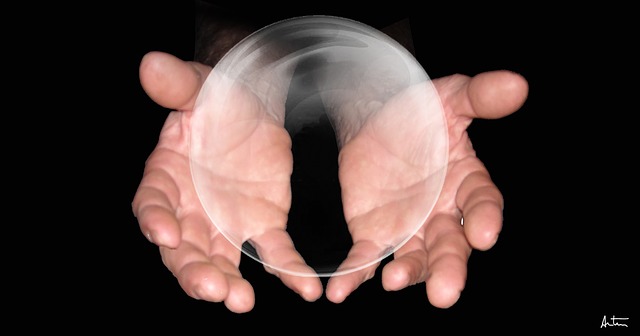I’m certainly no Carnac the Magnificent, the Johnny Carson character; and, I definitely don’t have a crystal ball. But if I did, I might see key education trends for 2018 (at least here in New York). While I will take no credit if I’m right — and I hope you’ll give me a pass if I’m wrong — I would love to hear your thoughts about whether you think these are likely shifts in our learning and leading structures as we enter the new year. Regardless, on behalf of all who blog for SmartBrief, I wish you a wonderful start to 2018.
Prediction 1: We’ll see a greater emphasis on the arts that will lead to an even greater emphasis on STEAM.
With new standards recently adopted in New York and the National Core Arts Standards still three years young, more and more schools and districts will be rethinking their support of fields like the visual arts, music, theater and dance. We have realized that as an organization, we need to begin providing more learning opportunities for teachers and leaders in these fields; to that end, we recently held an enormously successful music and technology symposium organized by an excellent educator in our region. Feedback collected showed how much attendees enjoyed the experience and, more importantly, how long they had been looking for an event like this. It was a bittersweet reminder that for too long we have provided too little for these educators and need to work to provide many more. With more learning opportunities in the arts comes more wondering about how to integrate further these subject areas into already scheduled days for teachers and students. While opportunities exist for students to explore these fields through both requirements and electives, showing learners (and their teachers) how to integrate these content areas into others is an approach that more and more of our districts are taking. We are slowly designing support structures to help educators see potential avenues for merging; our visual arts collegial circle group is focused on STEAM this year, one of the key questions being, “How do we help show our colleagues the need for the arts as a connector across subject areas?” I imagine our work in the region around the arts and STEAM will continue to develop.
Prediction 2: We’ll continue to take the best of face-to-face learning, and the best of virtual, and grow blended opportunities.
We know that face-to-face learning, overall, is the best way to build connections and cement learning. We also know that virtual learning provides opportunities to connect across boundaries more easily and, therefore, more efficiently expand our thinking outside of our usual silos. And, of course, in the best-case scenario, we strive to find multiple ways to combine the two. As we’ve thought about the best that both modalities offer, we’ve found ourselves wondering more and more about the place for blended learning in the learning opportunities we design with our region. We’ve experimented with blended learning in which participants learn in multiple locations and a facilitator joins virtually, which has helped us to connect more learners and to make opportunities to work with experts more economical. We are also working to design online courses using different platforms that meet in person to provide opportunities for reflection and positive accountability. And the blended opportunities don’t — and can’t — stop there. We continue to strengthen one of our student programs that uses a blended approach: students from across our region enroll in a series of online courses created by a consortium of districts. These learners meet three or four times over the course of the semester, including times for field experience. This blended structure has allowed students to learn from peers in other districts and teachers in other schools through a medium that will become increasingly important in their lives. This mode for learning seems primed to continue its growth next year and beyond.
Prediction 3: A continued need to connect, and an ever-shrinking world, will lead to a greater reliance on collegial circle groups.
A powerful lesson for us, and not an unexpected one, is how important group learning is for professionals. To that end, we’ve found that our collegial circle groups meet a tremendous need for educators in our region. Our collegial circles are designed such that learners with expertise in the same content or thematic area come together several times over the course of the year to learn as a region through discussion, protocols, readings, shared projects and networking. The need for us to connect in an already interconnected world shows the power of forming true bonds. Similarities in teaching and leading — and passion for the same educational ideal — keep our compasses aligned and our love for our profession strong. These collegial circle groups form the backbone of the learning opportunities we provide, serving as a temperature test for projects as well as go-to groups for announcements and questions about how the field is reacting to policies and practices. For the last few years, we’ve worked to provide new groups for educators to join; the more connected we are, the greater the potential for growth.
While I don’t know if any of these will come true, I do feel that the data we’ve collected points us towards these three predictions as becoming realities in our region [New York]. Not knowing exactly how things will end up is part of the reason why education keeps me engaged year after year.
Fred Ende (@fredende) is the assistant director of Curriculum and Instructional Services for Putnam/Northern Westchester BOCES in Yorktown Heights, N.Y. Fred blogs at www.fredende.blogspot.com, Edutopia, ASCD EDge and SmartBrief Education. His book, Professional Development That Sticks is available from ASCD. Visit his website:www.fredende.com.
____________________________________
Like this article? Sign up for ASCD SmartBrief to get news like this in your inbox, or check out all of SmartBrief’s education newsletters, covering career and technical education, educational leadership, math education and more.
